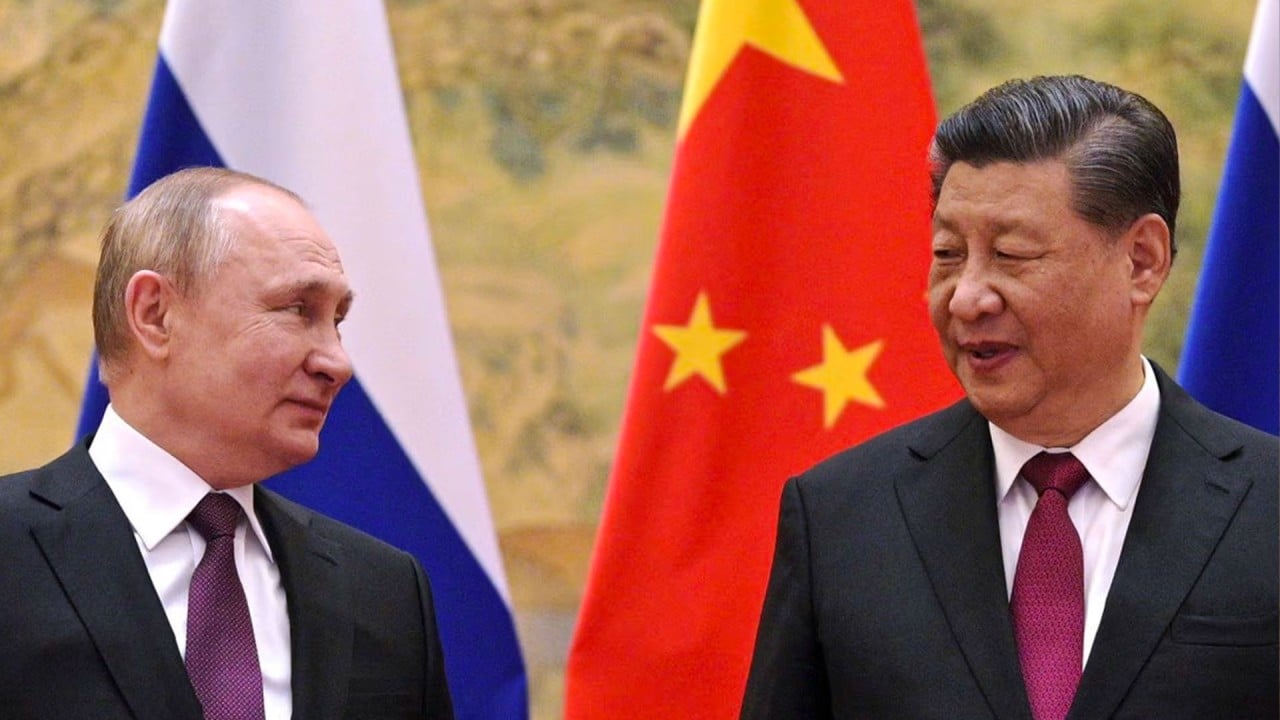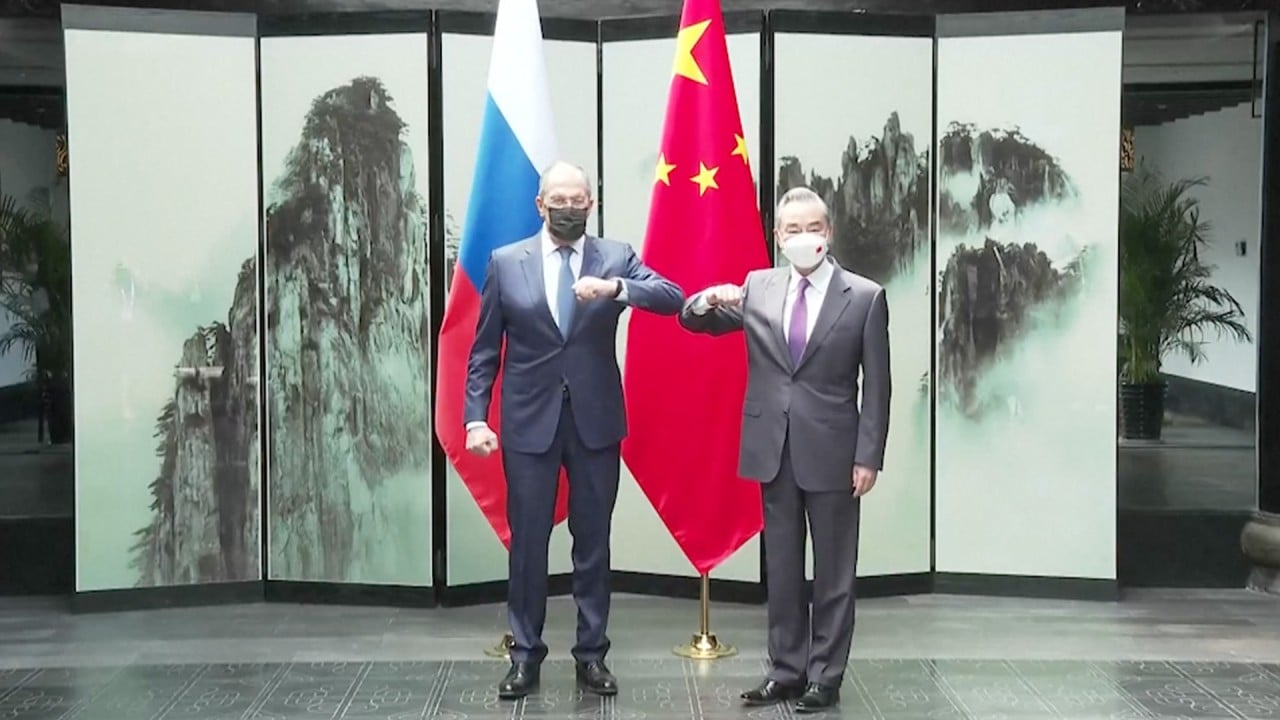
China does not want ‘enemies’ over Ukraine war, but wary of US threats to forex assets
- US move to freeze Russia’s foreign currency reserves shows risks of investing in the West are now much higher, says ex-central bank adviser Huang Yiping
- China is caught between a rock and a hard place when it came to following Western sanctions on Russia, says another former adviser Yu Yongding
Two former central bank advisers have said China does not want to make “enemies” over the Ukraine war, while warning about the “underlying risks” facing the country’s foreign reserve assets after Russia’s invasion.
Beijing has refused to condemn Russia’s military aggression and rejected calls from the West to join sanctions on Moscow, which it regards as a strategic partner.
In public statements, China has tried to remain neutral towards the conflict, while calling for a peaceful resolution. But its stance has been criticised by Washington and Brussels.
‘No winner in a trade war’: China urges US to drop tariffs that hurt everyone
Huang Yiping, a former member of the People’s Bank of China’s (PBOC) monetary policy committee, said the risks of investing in Western markets are now much higher.
“We don’t want to become anyone’s enemy,” said Huang in an online seminar organised by Renmin University of China on Wednesday. “But honestly, these underlying risks [in foreign assets] have already emerged.”
Beijing does not disclose where it invests its foreign exchange reserves, which amounted to US$3.188 trillion at the end of March, according to the State Administration of Foreign Exchange (SAFE), the foreign exchange regulator.
Data from the US Treasury, however, showed that China held US$1.055 trillion worth of US government bonds in February, making it the second largest foreign holder of American treasuries behind Japan.
“It’s not just in the US market, but the European market and the Japanese market. It’s possible that the outcome will be the same,” said Huang, who is now an economics professor at Peking University. “We cannot guarantee that we will forever stand together with them. There are times during which we will be in conflict.”
The US and its allies have frozen the foreign currency reserves of Russia, making it harder for the central bank to defend the rouble. The currency initially plunged in value by more than 20 per cent, before Russia imposed harsh capital controls to stabilise its value.
A country like China that runs a trade surplus has to invest in foreign assets and there are few other choices but US bonds, experts say.
Huang said China cannot avoid investing in Western markets.
China is no Russia: Beijing has ‘financial nuclear bombs’ if West sanctions
“In the future, if we just choose to maintain exchanges with a small group of countries that are relatively less developed, this is not great either,” he said. “China is the world’s second largest economy, in the future it should continue to push for globalisation even though there are obstacles.”
More than 100 hundred countries in the United Nations have not imposed sanctions on Russia, and China could explore greater cooperation with them, Huang added.
“I don’t wish for an opposition organisation but if there are common interests and ideas out there we may want to explore those opportunities,” he said.
Yu Yongding, another former central bank adviser, said that Western sanctions on Russia have failed to destabilise its economy and many countries in Europe continue to rely on its oil and gas.
The US had shown it is an unreliable partner by freezing the assets of Russia’s central bank, said Yu, who has long warned that China should diversify its foreign exchange reserves from American treasuries.
An estimated US$300 billion worth of Russia’s reserves held in foreign currencies have been frozen since its invasion of Ukraine on February 24.
“This shows that under certain conditions they will not return [the assets],” said Yu, who was also a speaker at the seminar, adding the US had previously seized foreign assets from countries such as Afghanistan. “This is just like a robbery. It has seriously damaged the US’ credibility.”
“When it comes to trade, the choice for Russia is limited,” he said. “The only way is to boost economic relations with China and India and other third world countries. I don’t think it’s possible for Russia to re-establish relations with the West after the war.”
Yu said China was caught between equally difficult alternatives when it came to following US-led sanctions on Russia.
“If China participates in sanctions and Russia is downgraded to a second-rate nation, will the US turn on China?” he said. “And if Russia sees China joining in, what would its attitude be?
“Will it reach a point when China will have two enemies and completely isolate itself? We need to think clearly about this.”
“Will [the US] use long-arm jurisdiction to impose secondary sanctions on Chinese companies and financial institutions? This is an urgent matter that the relevant people must make emergency plans for,” Yu said.



